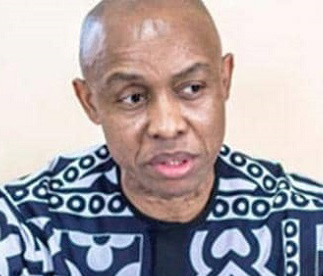BACKPAGE COLUMN BY Chidi Anselm Odinkalu
In March 2006, Uganda’s Supreme Court convened to begin adjudication of the disputes over the presidential election that occurred the previous month in the country. Voting took place on 23 February. Two days later, on 25 February, the Electoral Commission announced the results, giving the incumbent, Yoweri Kaguta Museveni, 59.28% of the valid votes cast. In second place, with an award of 37.36% of the votes, the Commission announced Kiiza Besigye, a medical doctor whose military career began as part of the bush war that brought Museveni to power 20 years earlier in 1986.
In his petition against the announced result, Col. Besigye argued that the Electoral Commission did not validly declare the results in accordance with the Constitution and the Presidential Elections Act, and that the election was conducted in contravention of the provisions of both. His evidence was compelling.
Yet, the impression that the petition process was a ritual performance with a predetermined outcome pervaded the process. Leading the legal team for the Electoral Commission of Uganda, the defendant in the petition was Lucian Tibaruha, Solicitor-General of Uganda. In reality, he also led the lawyers for the president, also a defendant alongside the Electoral Commission. Handling election petitions for a party political candidate was not supposed to be part of Lucian’s job, but there he was.
Presiding was Benjamin Josses Odoki, Chief Justice of Uganda since 2001 and the author of the 1995 Constitution that incrementally made Museveni a life president. Idi Amin, Uganda’s infamous military dictator, elevated Odoki to the bench as a 35-year-old in 1978. Amin’s nemesis, Museveni, elevated him to the Supreme Court eight years later and made him Chief Justice in 2001.
Announcing its reasoned judgment on the 2006 electoral dispute in January 2007, the court found that there had been non-compliance with the Constitution of Uganda and the applicable laws in the form of “disenfranchisement of voters by deleting their names from the voters register or denying them the right to vote” as well as “in the counting and tallying of results.”
The Court equally found as a fact that the “principle of free and fair elections was compromised by bribery and intimidation or violence in some areas of the country” and also that “the principles of equal suffrage, transparency of the vote, and secrecy of the ballot were undermined by multiple voting, and vote stuffing in some areas.”
Despite these findings, Chief Justice Odoki and his court ruled by a majority of four votes to three of Justices of the Supreme Court of Uganda to uphold the election and grant President Museveni another five years in power. Two years after this decision, in 2009, when the Chief Justice’s son, Phillip Odoki ,wedded, Museveni’s son, General Muhoozi Kainerugaba was the best man.
In 2010, it emerged that Chief Justice Odoki never harboured any doubts about the outcome. Questioned about the role of judges in deciding elections in Africa, Odoki, “smiled when commenting that to nullify a presidential election would be suicidal.” He lived to see his peers in Kenya and Malawi do just that in 2017 and 2020, respectively. It proved not to be suicidal.
According to a former Nigerian law teacher, Olu Adediran, the role of judges in these kinds of cases is in reality “a compromise between law and political expediency.” Jude Murison is more direct in calling it “judicial politics.” Judges are not instruments of change or revolution and when they are called upon to adjudicate between sides in a political dispute, they are more often than not likely to treat that not as an opportunity to change political paymasters, except when the bell has already tolled undisputedly for an incumbent.
Politicians are supposed to sell themselves to the people through their programmes and through campaigns in a contest of both ideas and vision. In return, the people through their votes offer endorsement to the politicians and programmes whom they believe best advance their interests. An electoral commission is a referee supposedly engaged and maintained at the public expense to administer this contest.
This is where things begin to break down. Although engaged in the name of the people, every electoral commission is appointed by people in power who never wish to relinquish it. When a dispute emerges over the job of the electoral commission, it ends up before judges. However, the same people who appoint the electoral commission also usually appoint the most senior judges to office. In the maelstrom of party-political competition, guardrails break down as politicians struggle to casualise the popular electorate to prosper a judicial selectorate.
The more election disputes end up in court, the more it becomes evident to politicians that it is easier to make deals with judges. The people are and can be unpredictable, unlike most judges. Increasingly, therefore, politicians seek to judicialize the site of decision-making on elections, relocating it from the polling booth to the courtroom.
If politicians can get their spouses appointed as judges, they can even make the site of decision-making in elections more intimate, relocating it from the courtroom to the bedroom.
Increasingly, instead of the usual soapbox, elections in many countries can be decided by good old pillow-talk.
A former federal legislator, Adamu







